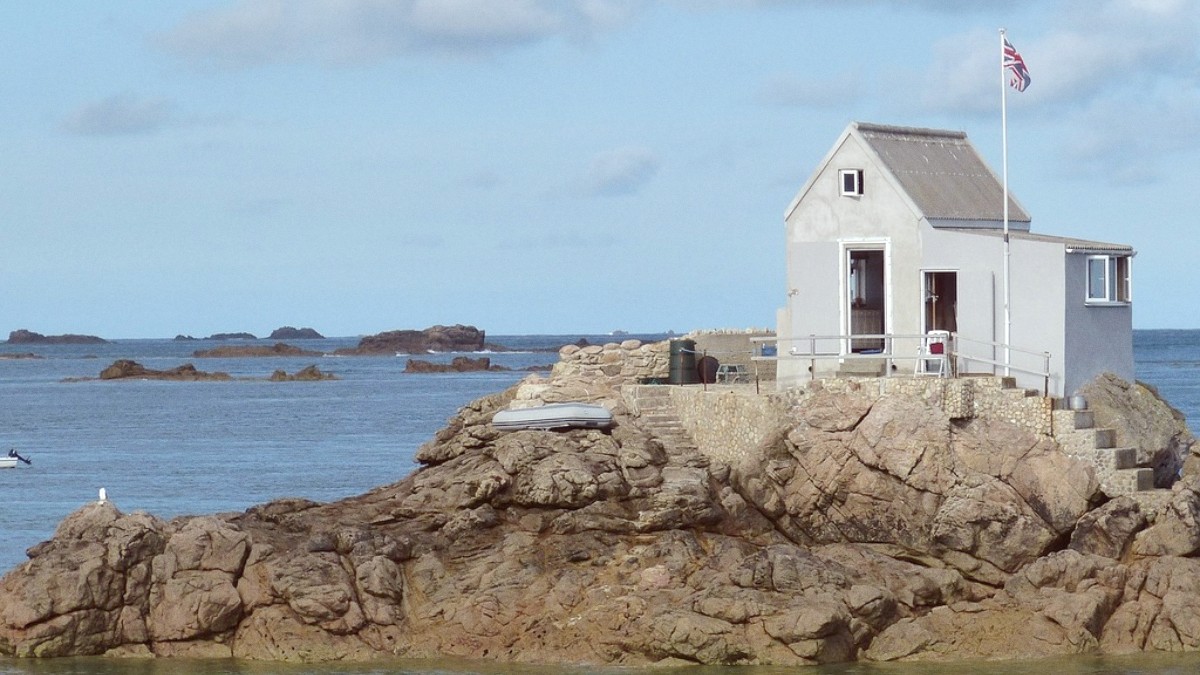
The Channel Islands
Spring (April-May): Average temperatures from 8-14°C (46-57°F). Rainfall remains moderate. Spring brings blooming flowers, making the island specifically picturesque. Expect cool mornings and evenings, with pleasant daytime temperatures often suitable for exploring.
Autumn (September-October): Average temperatures range from 10-16°C (50-61°F). Moderate rainfall returns. This season offers pleasant conditions for walking and cycling, with fewer crowds than summer. The island's landscapes take on beautiful autumnal colors.
Jersey generally avoids extreme weather events like monsoons or hurricanes. Strong winds, however, occur, notably during winter. These winds may impact ferry services and make coastal walks more challenging.
Always check local weather forecasts before planning outdoor activities, especially those near cliffs or the sea. Even in summer, evenings turn cool, specifically near the coast, so pack layers.
Warmest weather, most attractions operate fully, lively atmosphere across the island. Ideal for beaches, swimming, and all outdoor pursuits. Long daylight hours.
Warmest weather, most attractions operate fully, lively atmosphere.
Higher prices for accommodation and flights. More crowded. Advance booking for everything.
Pleasant weather conditions, fewer crowds, generally lower prices.
Pleasant weather, fewer crowds, lower prices. Good for hiking, cycling, exploring. Natural beauty.
Some seasonal attractions may have reduced operating hours or close at the very beginning or end of this period. Cooler water temperatures.
Significantly lower prices for travel and lodging. Very few crowds.
Significantly lower prices. Very few crowds. Tranquil, personal experience. Authentic island life.
Colder weather, higher chance of rain. Many seasonal businesses close. Limited ferry services. Fewer comfortable outdoor activities.
Beach & Water Sports: July or August. Sea reaches its warmest temperatures, all beach facilities open.
Hiking & Cycling: Shoulder seasons (May-June & Sept-Oct) for ideal conditions. Mild weather, less crowded trails, beautiful scenery.
April to October offers access, as most historical sites and museums operate full seasonal hours.
Visit in May or June to see Jersey's wild orchids in bloom, notably in areas like Les Mielles Nature Reserve.
Tennerfest, a popular food festival with reduced price menus, takes place in October and November.
This period presents a fantastic opportunity to sample Jersey's cuisine at a lower cost.
Check local event calendars for festivals or cultural happenings aligning with your visit.
Jersey's entry requirements generally mirror those of the United Kingdom, with specific considerations due to its unique status within the Common Travel Area (CTA).
Jersey forms part of the Common Travel Area (CTA), which includes the United Kingdom, Ireland, Guernsey, and the Isle of Man. British and Irish citizens do not require a passport to travel between these areas, though photo identification is often needed.
EU/EEA/Swiss Citizens travel to Jersey for tourism with a valid passport. For stays over six months, a visa or immigration permission may be needed.
No specific entry fees for tourists entering Jersey. Immigration procedures at Jersey Airport and the Elizabeth Terminal (ferry port) are straightforward for travelers with valid documentation.
Prices vary significantly based on your travel style and the season.
The local currency is the Jersey Pound (JEP). It pegs at a 1:1 rate with the British Pound Sterling (GBP). British Pound Sterling banknotes and coins are universally accepted and used interchangeably with JEP.
However, Jersey Pound notes are not generally accepted outside the Channel Islands. Plan to spend any JEP notes before you depart or exchange them for GBP at a bank or bureau de change before leaving the island.
Stays in hostels, campsites, or very budget-friendly guesthouses. Cooks some meals from supermarket purchases or relies on inexpensive takeaways.
Accommodation: £20 - £40 (Hostel/Campsite)
Meals: £15 - £25 (Supermarket/Cafe/Takeaway)
Chooses comfortable hotels, guesthouses, or self-catering apartments. Eats at a mix of mid-range restaurants and occasionally self-caters.
Accommodation: £50 - £80 (Guesthouse/B&B)
Meals: £30 - £60 (Mid-range Restaurants)
Stays in 4-5 star hotels or premium boutique properties. Dines frequently at fine restaurants. Uses taxis, private transfers, or rents a car for flexibility.
Accommodation: £90 - £150 (Mid-range Hotel, higher for luxury)
Meals: £70 - £150+ (Fine Dining)
| Category | Price Range | Details |
|---|---|---|
| Accommodations (per night) | £20 - £400+ | Hostel to Luxury Hotel |
| Meals | £5 - £150+ | Takeaway to Fine Dining |
| Transportation | £2.50 - £60+ | Bus ticket to daily car rental |
Jersey remains a very safe destination with high standards of public health and safety.
No specific vaccinations are required for entry to Jersey.
Travelers should confirm their standard immunizations are up-to-date (MMR, DTP, Polio, Hep B).
Consult a travel health professional or your doctor at least 4-6 weeks before your trip for personalized advice.
Jersey presents very few specific health concerns for travelers.
Sunburn, minor cuts/scrapes, dehydration, and insect bites are mild issues.
Use sunscreen (SPF 30+), wear Sunglasses and a Wide-brimmed hat. Carry a Basic first aid kit. Drink plenty of water (tap water is safe). Use Insect repellent if sensitive.
Tap water in Jersey is safe to drink.
Dial 999 for Police, Fire, or Ambulance services. This number works for all emergencies across the island.
Available, but non-residents typically pay a fee for consultations. Consider this a medical expense covered by travel insurance.
The main facility is Jersey General Hospital in Saint Helier. It provides comprehensive medical care and emergency services.
Jersey has a very low crime rate and counts as one of the safest destinations for tourists. Serious crime is rare. Pickpocketing can occur in crowded areas, though uncommon. Jersey faces minimal risk of major natural disasters.
Strongly recommended to purchase comprehensive travel insurance before your trip. This policy should cover:
Emergency medical treatment, hospitalization, and medical evacuation.
Trip Cancellation/Interruption for unforeseen events preventing or shortening your trip.
Baggage Loss/Delay and Personal Liability. Ensure your policy covers any adventure sports or activities you plan to undertake.